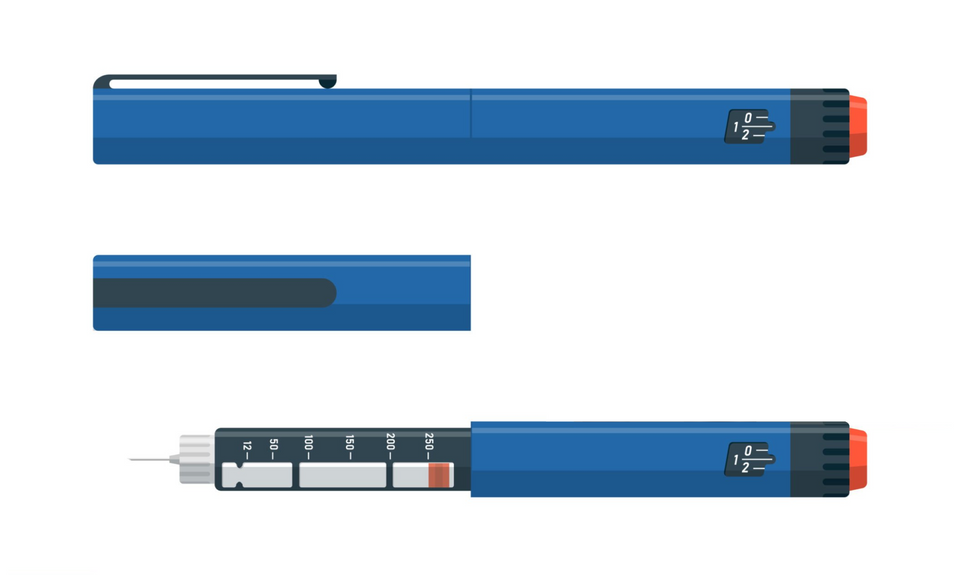Health and wellness in the age of Ozempic

At this point, if you haven't heard of the weight loss drugs, Ozempic, Wegovy, Mounjaro, and the latest – Zepbound, you must be living under a rock. Semaglutides or GLP-1 agonists (as they are classified as technically) aren't just another generation of fat burning snake oil. They are the real deal: scientifically sound and revolutionizing millions of weight loss journeys.
These drugs have been so effective and so widespread that I now have concerned friends and family members asking me, "Will there even be a need for nutritionists when pharma companies solve the problem of obesity?" Well... there wouldn't be if nutrition coaching was purely about facilitating weight loss. But in my opinion, nutrition coaching is about so much more.
As a nutrition coach, I take the number on the scale into account, but it's not my top priority. My priority is understanding the complex needs of every individual client, taking their biology, their lifestyle, their history, and their personal idea of health into account. I guide clients to understand how various foods impact them individually, and how their eating habits tie back to their mood, energy, and quality of life. I also talk them through how to balance nutrition, activity, social engagement, sleep, and stress management to not only be healthy physically, but mentally as well.

In this context, I say bring on the cutting edge injections and pills that will cut me out of the weight loss part of the equation. Let me focus instead on the individualized health part of the equation.
Semaglutides have faced harsh criticism and stigma from professionals in the fitness community, where the ethos of hard work and sweat equity reign supreme. Your fitness trainer may believe that there is only one "correct" way to achieve weight loss, and it is through the traditional methods of diet and exercise. Well, they are kind of right and kind of wrong.
It's hard to deny that there are real and significant benefits to losing weight the natural, drug-free way. Other than the perception that gritting your way through tough workouts and committing yourself to healthy choices develop discipline and self-efficacy, there are clear physical advantages to taking the old-fashioned path. Physical activity boosts heart health, strengthens muscles and bones, improves flexibility and balance, and enhances lung function. Eating a diet rich in nutrients supports every organ in your body, and reduces stress, anxiety, and depression.
However, saying that every individual who wants to lose weight has to toughen up and do it through diet and exercise alone neglects the realities of many of their lives. The experience of weight loss varies drastically from person to person. For someone who has grappled with obesity for years, the journey towards a significant, sustainable weight change is fraught with challenges that a trainer who has been fit their whole lives will never completely grasp. They may carry legacies of trauma and immense metabolic damage that a healthy person simply cannot empathize with.

For these individuals, why make the journey towards a healthy weight more arduous than it needs to be? And let's acknowledge that Ozempic et al. are not silver bullets; they are but one additional weapon in our arsenal in a long and hard battle against obesity and all its' dire health implications.
Using medication to lose weight doesn't detract from the importance of developing healthy lifestyle habits. On the contrary, it underscores it. For individuals on weight loss meds, mindful eating and regular physical activity are indispensable. They must navigate their reduced appetite to ensure they meet their body’s nutritional needs while avoiding potential negative outcomes, such as the loss of lean muscle mass.
The introduction of weight loss drugs has prompted a critical debate on the relationship between body weight and health. On one hand, body positivity activists assert that body weight alone does not determine one's health or self-worth. On the other, medical professionals attest that there are strong links between excessive weight and risk of chronic diseases. They can both be right. While body weight and health are interconnected, they are not one and the same.
And perhaps what is most important here is not what the experts are saying, but how you choose to navigate your relationship with your own body.

As we grapple with new advances in weight management, with the drastic cultural shifts they are bringing about, we must make an effort to be understanding and accepting of one another above all else. The era of Ozempic and similar medications invites us to broaden our perspectives. It challenges us to embrace loved ones who make choices for their bodies that may contradict the ones we make for our own.
At the end of the day, your body weight is just one part of your overall health. The way you handle the rest – your diet, exercise, mental health, and more – is all in your hands as well.


